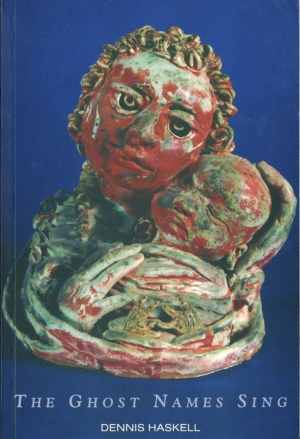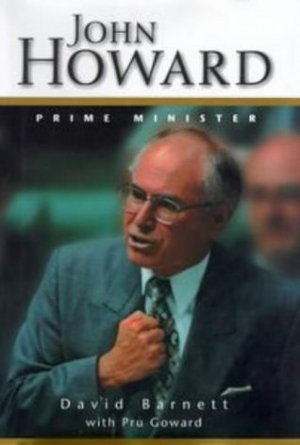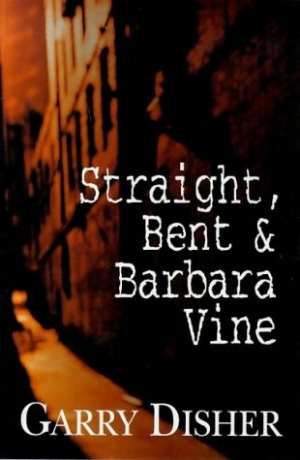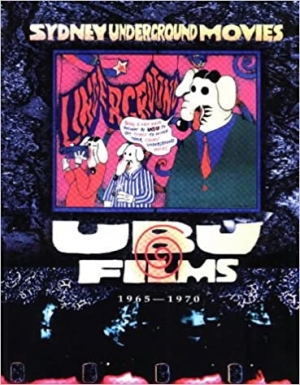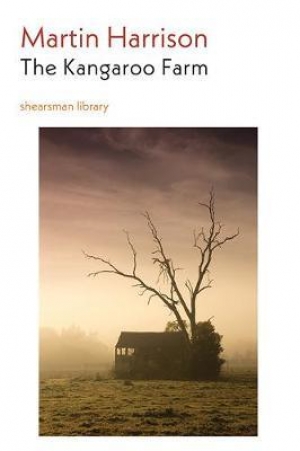Archive
Brian Henry reviews 'The Ghost Names Sing' by Dennis Haskell and 'Album of Domestic Exiles' by Andrew Sant
Both Dennis Haskell and Andrew Sant are primarily domestic poets. Family and friends comprise the milieu of many of their poems, which attempt to transform quotidiana into something of enduring interest. The chief danger of this type of poetry is that the prevalence of so many poems about family members and friends results in a poetic environment that can resemble a vast, monotonous suburb. If most domestic poets seem indistinguishable from each other in their subject matter alone, then the situation of contemporary poetry becomes further muddled when this homogeneity is bolstered by a general complacency with language.
... (read more)Autobiographical tales, at least in Australian culture, tend to come in three kinds: the kind that was written as a self-consciously literary product; the kind that has a unique or sensational angle, or focus, or moment; and the kind that was written by the famous to tell the story of their fame, usually with content well to the fore over style.
... (read more)I appreciate the irony. I deliberately used the title Personal Best for anthologies I once edited (1989, 1991) as a way of saying that there are personal achievements outside the world of sport, and now I am being asked to review an anthology titled Personal Best which is a collection of stories about sport (for young adult readers).
... (read more)Letters to the Editor - February-March 1998
Sunday, 01 February 1998From Denis Altman
Dear Editor,
I suspect I’m the ‘(male) baby boomer academic who should have known better’ referred to by Delia Falconer in her piece in the Gangland symposium (ABR, November 1997).
... (read more)Joe Rich reviews 'John Howard: Prime Minister' by David Barnett with Pru Goward
This is a tale of good guys and bad guys. The bad guys (mostly called Whitlam, Hawke, or Keating) are zealous lackeys of two ogres called Centralised Wage Fixing and Political correctness. They are often helped by other guys (frequently called Peacock, Elliott, and Bjelke-Petersen) who pretend to be good but aren’t.
... (read more)Stuart Coupe reviews 'Straight, Bent and Barbara Vine' by Garry Disher and 'Raisins and Almonds' by Kerry Greenwood
As the co-publisher of Mean Streets, Australia’s ‘crime, mystery and detective’ fiction magazine, I have, like Garry Disher, occasions when I wonder what the various terms actually mean and what separates them. It’s something Disher addresses in the author’s note to this very fine collection of stories which are amongst the best writing Disher has done. As Disher says:
... (read more)Nicola Robinson reviews 'Rise & Shine' by David Legge and 'I Know That' by Candida Baker, illustrated by Alison Kubbos
‘Yellow, yellow, yellow, yellow, I’m sick of wearing yellow!’ declares the pomposity of puffed-up Mr Toad, intends staying in bed until he gets what he wants – a new blue suit, like those worn by the Moon. Meanwhile, the roosters haven’t crowed, the cows need milking ... saplings want their dew and it’s bitterly cold, and so Mother Nature, Father Time, King Neptune and the Moon set out to solve the problem, with help from the Celestial Tailor. The results are ridiculous and enjoyably rude.
... (read more)Juno Gemes reviews 'Ubu Films: Sydney underground movies 1965-1970' by Peter Mudie
Why are we still hooked on the 1960s? As English art historian David Mellor said they were the Utopian Years. Perhaps our dreams and aspirations were anchored there. It is a rather difficult period to review with historical accuracy precisely because it was so rich in ideas and ideals; there was so much happening.
... (read more)Kevin Brophy reviews 'The Love Song of Lucy McBride' by Steven Carroll
In his third novel, Steven Carroll continues to work on those questions, obsessions, scenes and images that preoccupy him as a writer – the characters and personalities of women, and in particular that figure of a sexually charged and sophisticated young woman so disturbing to Helen Garner in The First Stone; the language of infatuation; the placement of characters in their particular city; mismatched lovers as the centre of a love story; and a certain trick Carroll has of overlaying the inner lives of characters with the narrative of events in the story being told. It is as though his characters swim, groggily, up out of their fantasies into the harsh, ironic events that have been provoked by their inner dreams. Life in his novels operates as a merciless commentary on the evasions and hubris of each character's consciousness.
... (read more)Martin Harrison’s attentive poetry must be read attentively: the snaking semi narratives move through the landscape as rivers finding their way. The tonal shifts and mixed modes are fundamental to this collection’s many middle-sized poems that are often (even more than in his previous book, The Distribution of Voice) both verse essay and lyric, as Kevin Hart has noted. Not that all this in itself makes for good poetry; there are times when the verbal constructions are a little too odd, a little too free with metaphorical bravura. Why is it that ‘The gift of tongues and sight is platypus’? Other poems play with their referents like a fisher with a fish. Even syntactically straightforward similes such as ‘Mirrored clouds spike themselves with sharp, green shoots / in paddies marked out like holding tanks or Versailles’ lakes’ take a bit of thinking over.
... (read more)
